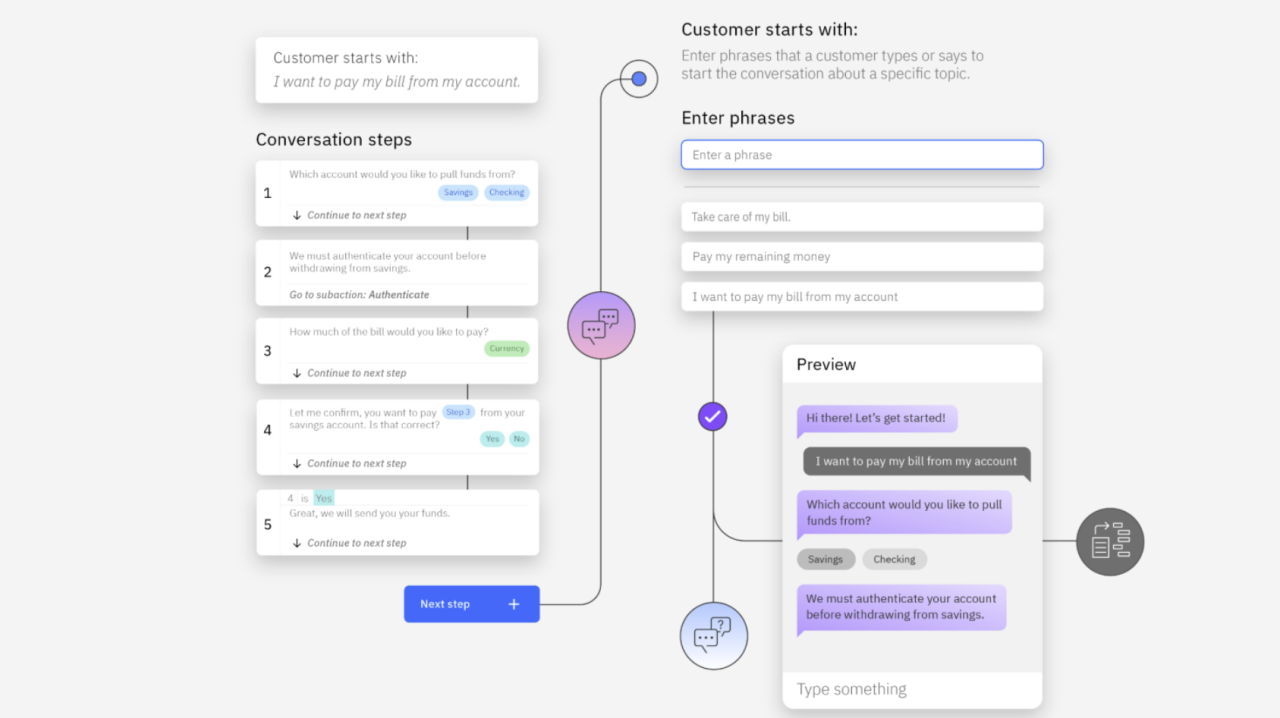
AI, Trust, and Collaboration: Inside IBM's Partner Plus Service Transformation
IBM has again demonstrated its continual commitment to scaling innovation through the recent launch of its new service track within the Partner Plus program.
In the latest Tomorrow's Tech Today podcast, I talked to Steve Smith GM for Service Partners at IBM about the company’s experience over the last year, as it launched Partner Plus – and expanded its reach from top-level vendors down.
We also discuss IBM's leadership in AI governance, the importance of trust in AI adoption, and the company’s commitment to transparent AI solutions. And finally, stay tuned for Steve’s insight into the areas where AI is already delivering benefits, such as automation, HR, and customer interaction, as well as its future potential in sustainability!
A Refreshed IBM Partner Program
Not just a repackaging of existing resources, but a targeted investment designed to empower service partners to confidently deliver transformative solutions – including hybrid cloud and AI. As brought to life by Steve, that was the thinking behind IBM Partner Plus!
While the IBM partner program originally focused on providing the most benefits to top consultancies and systems integrators, IBM has now expanded the program with hundreds more service partners enrolled – and more interested in joining the IBM Ecosystem every day!
To facilitate adoption and provide more benefits to service partners, IBM introduced new additions to the Partner Plus track. One key benefit includes greater investment, enabling more practitioners to qualify.
IBM also launched a new solution acceleration team. This solution acceleration team encourages co-creation: which includes jointly developing go-to-market strategies that infuse cutting-edge technology into client solutions that drive their success. It also makes all IBM enablement resources available to partners and includes a focus on implementation and deployment for service partners.
Finally, an internal IBM success team disseminates these solutions across their salesforce, leveraging the power of IBM to benefit both partners and clients.
Education And Enablement in Partner Engagement

At the heart of this strategy is a recognition that clients face a critical skills gap. They crave the ability to implement and deploy complex technologies, like hybrid cloud and AI, and at a meaningful scale. IBM's partner program directly addresses this challenge!
By providing the right resources, training, and support, IBM is equipping its partners to become true extensions of its innovation engine, driving client success and delivering tangible results. Indeed, since IBM started on the Partner Plus journey, over 130,000 individuals have used the educational offering – this goes a long way to democratising access to critical skills.
Steve says that the company is focused on understanding successful strategies, with a strong desire for direct access to IBM’s technology – the ability to experiment, build, test and deploy. By aligning IBM teams to support skill development, the company is confident it is setting the stage for success and high levels of engagement.
Hybrid Cloud and AI: Investments and Innovations
IBM is also sharpening its focus on hybrid cloud and AI solutions, especially with clients in highly regulated industries facing complex problems in these areas.
Steve says that IBM's history and expertise differentiate the company in addressing these challenges – in part because the company has worked in highly regulated industries such as healthcare, finance, and government for many years.
Service partners are also invaluable in this journey as IBM’s partners provide the scale to implement IBM’s technology solutions more widely. Combine IBM tech with partner expertise through training and certification and the result is a scalable, yet unique offering. It’s a strategy that’s paying off as the market recognizes that IBM's value proposition includes open-source leadership and a generative AI platform specifically designed for business.
IBM is also addressing the cost concerns of AI projects through a potent combination of technology and partnerships, so clients leverage the mature IBM Ecosystem rather than building everything in-house.
AI Governance and Trust: A Cornerstone of Partnership Success
The company also holds a market leadership position in governance, achieved in part through important cultural changes, especially within highly regulated industries. IBM is among the few vendors willing to indemnify its AI technology. These factors are critical and explain why service partners are increasingly turning to IBM for market-leading solutions.
Organisations across all sizes and industries face unique challenges when implementing generative AI models. While they offer huge opportunities, they also present key concerns including around data integration and lineage. This is where AI governance is crucial. Responsible AI practices should always be the foundation of any AI implementation. Indeed, recent missteps with AI highlighted in media stories across the world have highlighted the all-importance of trust. Lost client relationships and failures with sensitive data have lasting consequences!
In this context, IBM’s long-standing reputation for trustworthiness moves centre stage. This is essential when partnering with clients, especially in the AI space. Steve says that IBM’s emphasis on reliable and transparent AI solutions enables customers to roll back changes or understand outcomes. And, without this trust, many customers will hesitate to adopt AI.
Experimentation in AI is ongoing and welcome… but production-level AI deployments demand bulletproof solutions. At IBM, there’s a focus on transparent technology that empowers both clients and service partners to make truly informed choices about their AI adoption.
Transparent AI Innovation
Within AI governance it’s also important to move beyond transparency to demonstrable accountability. As legislative frameworks evolve across different regions, a focus on increased personal accountability for every member of the C-suite is absolutely key.
Done correctly, this shift can ease complexity and drive innovation rather than constrain it. Without providing clear proof of trust and governance at an industry-standard level, clients will face significantly increased overhead, cost, and time investment.
Steve said that, at IBM, the primary goal is to help clients achieve these outcomes faster, while still maintaining that essential level of trust. At the core: offering clients flexibility. The beauty of hybrid models and open technologies is that clients can select the components they need. IBM enables this granular approach, where you can adopt pieces of the solution as required.
Yet IBM also emphasizes services, because technology deployment requires expertise. Many of IBM’s largest clients can handle aspects independently, but some prefer to focus on their core business and outsource technology development. This dynamic interplay between client, service partner, and technology is where successful outcomes occur – and is a core element of IBM’s value proposition.
Where’s The Biggest Return For AI?
As it stands, AI benefits concentrate on a few key use cases that drive both cost efficiencies and productivity. Digital labor, customer experience and app development & IT operations workflows provide the strongest returns on AI investments.
Automation allows companies to refocus on core business, allowing them free-up resources for innovation and client impact. AI-powered automation offers higher-value opportunities.
HR is also a great beneficiary. AI doesn't replace HR but automates tasks like hiring, onboarding, and salary adjustments. This lets HR focus on training, skills analysis for new positions, and smart hiring decisions.
Many clients began their AI journey with customer experience– marketing, and sales. While basic assistants started this trend, true value lies in AI systems that learn, adapt, and power more engaging interactions with clients. This is where IBM sees a majority of AI projects going live, driving better returns. These initial focus areas will surely expand with time.
Recognizing that scaling generative AI across the enterprise requires deep integration across the core workflows and processes that businesses run on, Service partners are more critical than ever. That’s why IBM has transformed its program, enabling Service partners of all sizes to help companies integrate, govern and manage AI deployments across all of the systems that are core to the way business operates.
And a quick reminder that you can learn more about the IBM Partner Program here: 🔗https://bit.ly/IBMPartnerPlus📌
And catch the podcast here!
🔗 https://www.youtube.com/watch?v=LDK5Nz2-0q0 📌
All feedback most welcome 🗨️
Many thanks! Sally
About the Author
A highly experienced chief technology officer, senator for advanced technologies, and a global strategic advisor on digital transformation, Sally Eaves specialises in the application of emergent technologies, notably AI, 5G, cloud, security, and IoT disciplines, for business and IT transformation, alongside social impact at scale, especially from sustainability and DEI perspectives.
An international keynote speaker and author, Sally was an inaugural recipient of the Frontier Technology and Social Impact award, presented at the United Nations, and has been described as the "torchbearer for ethical tech", founding Aspirational Futures to enhance inclusion, diversity, equity, and belonging in the technology space and beyond. Sally is also the chair for the Global Cyber Trust at GFCYBER.
Trending
-
1 How Does SaaS Differ From IaaS And PaaS?
Fabrice Beaux -
2 Single Page Applications vs Multi-Page Applications
Fabrice Beaux -
3 Top 7 Effective Strategies for Multi-Language Website Development
Fabrice Beaux -
4 Boost Engagement to Infinity and Beyond: Unleashing AI-Driven Support
Anas Bouargane -
5 The Cheapest And Most Beautiful Stickers in CS2
Daniel Hall






Comments